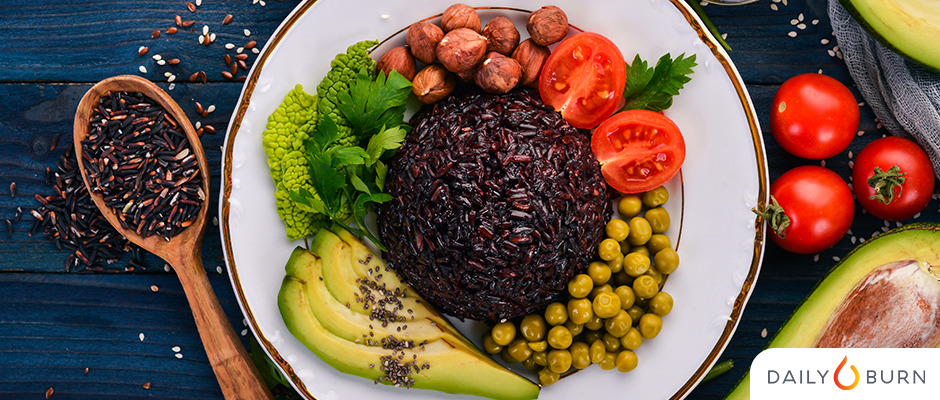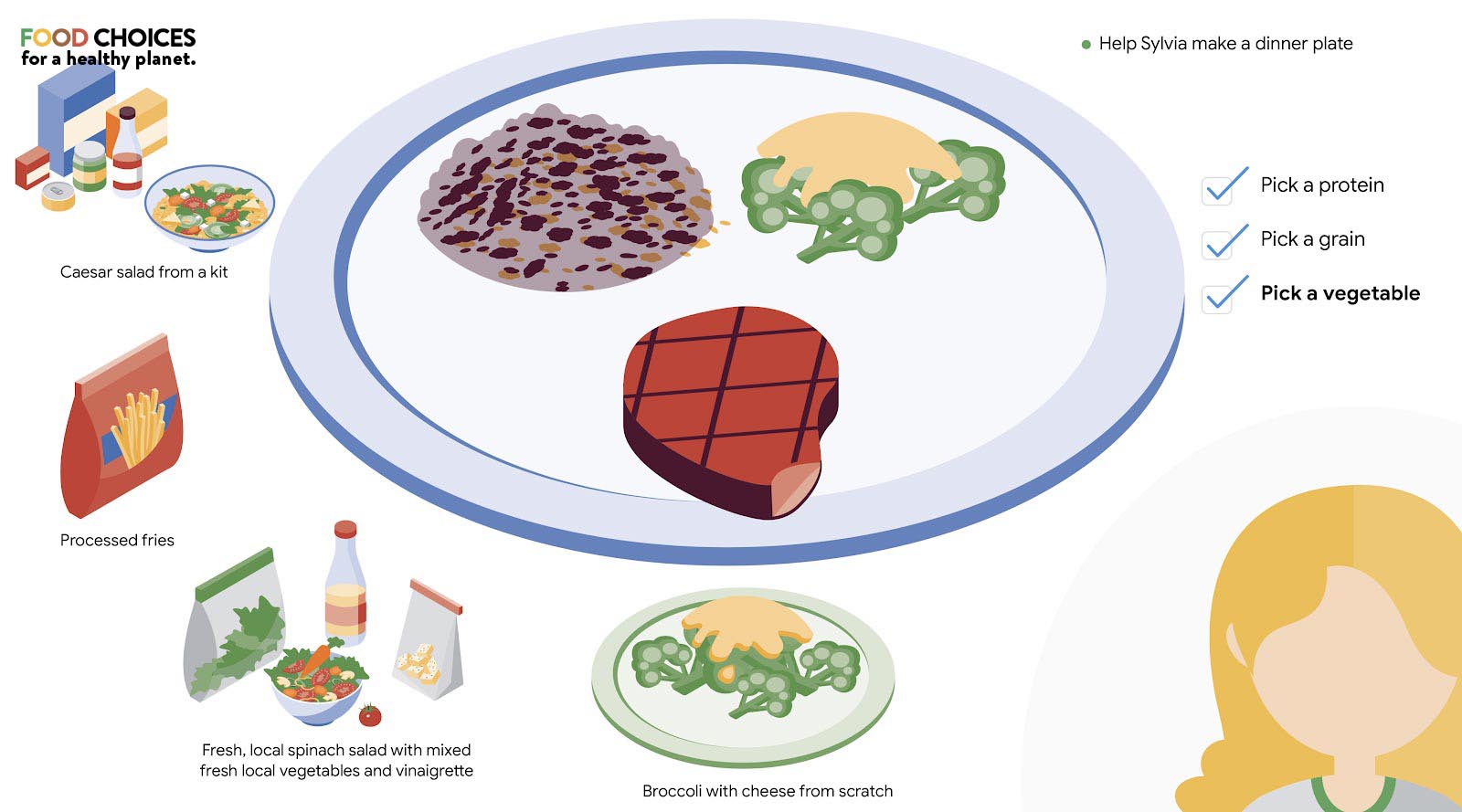
For healthy weight management, it's important to follow the guidelines. People who follow these tips live longer and eat healthier. These guidelines are from the Dietary Guidelines for Healthy Americans. You should consult a registered professional or dietitian with any questions. Depending on your particular situation, some of these tips might be useful. For help, a dietitian is available if you have questions.
A typical physical activity burns about 15-30% calories. The remainder is lost through incidental activity or thermogenesis. Using an exercise tool is helpful for calculating how much energy is expended during an activity. Consider your food intake when deciding on the best diet. The Mediterranean diet is a great choice for both men and women. It is rich in healthy fats but low calories. A diet that is right for you can help you lose weight and improve your chances of developing chronic diseases.

Change your diet and include exercise into your daily life. With regular exercise and a healthy diet, it's possible to lose weight quickly and improve your overall health. Below are some guidelines for losing weight. Following a healthy diet and engaging in regular exercise are the key steps to a healthier body. These guidelines will increase your chances of losing weight. You can make a healthier lifestyle and achieve your goal of a thinner waistline.
It isn't easy to lose weight. Follow these simple steps to transform your body and feel better. With sensible eating and exercise, it's possible to change your shape and feel great. It's also very important to keep in mind that these guidelines can be challenging to follow. Although they aren't easy to follow, they can be helpful in achieving healthy weight.
The guidelines should be included in written guidance for program staff and in the program/procedures policy manual. These guidelines should contain information about the products that are used and the benefits to losing weight. These guidelines must be included if you are not in compliance. This regulation only applies to providers of extremely low-calorie diet plans. But these guidelines aren't for everyone. They apply to providers of these diet plans.

Be sure to mention that the guidelines are being followed for weight loss. To avoid health risks, it is important to follow these guidelines. A happier body will lead to a healthier lifestyle and a better quality of life. These guidelines can also be used to help you lose weight. If you're eating a healthy diet, it will be easier to follow these guidelines. Healthy eating has many other advantages.
FAQ
Is it true?
Protein helps to maintain healthy bones, tissue, and skin. Consuming too much protein can result is calcium excretion via urine. This can lead kidney stones.
It's important to note that not everyone gets kidney stones after eating more than 2 grams of protein per kilogram (2.2 pounds) of body weight. High amounts of protein can be consumed by some people without causing kidney stones.
By being careful with your sodium intake, you can prevent kidney stones. Sodium is important for maintaining the body's water balance. A high level of sodium can increase the risk of developing kidney stone.
You may also want to reduce your protein intake in the event of kidney stones. The majority of adults need protein for half their daily caloric needs. A reduction in protein intake will likely result in weight loss.
If you do decide to eat more protein, don't go overboard. Limit your intake to 20% of your total daily protein intake.
How many calories should I consume daily?
This varies from person to person. On average, 2000 to 2500 calories are consumed per day. It is important to consider your lifestyle and determine how many calories you'll need.
Can I go to a gym 7 days per week?
You can go to the gym seven times a week, but not at once. You need to find a time that you are able to do this without feeling exhausted or drained.
This will help you remain motivated and have more energy to do other activities.
You must also ensure that you eat enough during these times. This will help you not feel tired or slow at the gym.
Last, you must make sure that there isn’t another thing competing for your attention. You might want to avoid working out on school nights if you have kids. They can distract you from your exercise routine.
Do Men Need A Gym Membership?
Men do not need a gym membership. If you sign up for a gym, however, your money will be much more valuable.
Many gyms offer free trials that let you try the facilities before you pay any fees.
You can use the gym at any time you want, and it doesn't cost anything. You can cancel your membership as soon as you decide whether you love or hate it.
Statistics
- By John Thompson Take a whopping 38% off a set of PowerBlock Pros. (menshealth.com)
- Cardmembers earn 5% Back at Amazon.com with a Prime Credit Card. (amazon.com)
- According to the American Heart Association, blood pressure should be checked at least once every two years, beginning at age 20. (my.clevelandclinic.org)
- According to the American Academy of Dermatology (AAD), men over 50 are at a heightened risk of developing it. (healthline.com)
- Get free shipping and 25% off today. (healthline.com)
External Links
How To
How can I exercise to burn fat?
Exercise reduces calories by increasing metabolism, and oxygen consumption.
At moderate intensity, you will lose weight easily.
These tips will help you burn fat and keep fit while exercising.
-
Cardio exercises include swimming, running or cycling.
-
For 30 minutes, do it three times a week.
-
Strength training is a great way to lose weight.
-
Avoid intense workouts. You can build muscle without having to lose muscle tissue.
-
Drink plenty of water during exercise. Water flushes out toxins, and keeps your body properly hydrated.
-
Choose low-fat protein shakes after working out. Protein shakes boost energy and repair muscle tissue.
-
Eat smaller meals throughout the day, so you don't feel hungry between meals.
-
Don't skip breakfast! Skipping breakfast can lead to fatigue and sluggishness.
-
Take care of yourself mentally. Stressful situations can slow down metabolism.
-
Keep a positive attitude. Studies show that overweight people are more likely to be obese than those who perceive themselves as attractive.
-
Get enough sleep. A lack of sleep makes it difficult to lose fat.
-
Active living is key. Keep moving every hour.
-
Maintain a healthy diet. A healthy diet will help you feel fuller for longer.
-
Find relaxation methods. Your body won't release stress hormones that cause muscle tissue destruction if you have a tense mind.
A balanced diet will provide all nutrients that are necessary for growth.
Instead of eating three large meals a day, eat six smaller meals every day. This allows your body time to digest what you've eaten.
To maintain strong bones, you need to consume 500 mg of calcium each day. Calcium is found in dairy products like yogurt, fortified milk beverages, orange juices, cereals and bread.
Calcium comes from leafy green vegetables, beans, tofu, nuts, seeds, and cheese.
Your body needs vitamin D to absorb calcium. It's found in fatty fish, egg yolk, and some fortified foods.
Vitamin E is vital for your skin's health. Vitamin E can be found in vegetable oils as well as wheat germ oil, peanuts and almonds.
Your body needs zinc to maintain normal immune function and heal wounds. Zinc can be found as a mineral in oysters.
Zinc deficiency may cause fatigue, loss appetite, depression, and impaired immunity.
Too much sugar leads to insulin resistance. This results in higher blood glucose levels. Insulin resistance is linked to weight gain.
High levels of free radicals can lead to insulin resistance. Free radicals can be molecules with unpaired electrons that cause damage to cell membranes.
Free radicals come mainly from food additives, pesticides, herbicides, preservatives, smoking, air pollution, radiation, chemicals in cosmetics, lotions, and household cleaning supplies.
Free radical damage may lead to cancer, heart disease diabetes, arthritis, asthma and other conditions.
To prevent free radical damage, eat a healthy diet rich in antioxidants. Antioxidants protect against oxidative damage.
Vitamin C (found on citrus fruits), Beta carotene, found in carrots and sweet potatoes, spinach and broccoli, cantaloupe (found in tomatoes, mangoes and peppers), and Vitamin E (found nuts, olive oil and avocados).
Other antioxidant nutrients include selenium, copper, manganese, and zinc.
Selenium is known to protect cells from the oxidative damage that free radicals can cause. Selenium is found in Brazil nuts, tuna, liver, kidney, shrimp, cod, turkey, beef, lamb, pork, and chicken.
Copper protects the brain, eyes, lungs, and red blood cells. Copper can be found in meat, shellfish, meat, and organ meats.
Manganese forms an essential part of bone structure. Manganese can be found in brown rice and spinach as well as bananas, prunes raisins, oatmeal, lentils, and oatmeal.
Zinc is necessary for average growth, reproduction, and wound healing. Zn is present in lean cuts of meat and white fish, as well as eggs.